climate justice

The pope talks about environmental protections from a spiritual perspective — an understanding of creation as a holy and precious gift from God, to be revered by all. We should make it a priority to keep our air clean, our water pristine, and our land whole. Whether we understand environmental stewardship as a God-given moral responsibility or from an economic and military strategic viewpoint, the fact remains: Environmental instability is inextricably linked to economic instability and increased discord throughout the world.

More than 97 percent of climate scientists agree that human-caused climate change is happening here and now. Yet many Americans are unaware of this scientific consensus.
Meanwhile, evidence of climate change is mounting—rising seas, retreating glaciers, and extreme weather—as are their effects on human health and well-being, everything from more lung disease and vector-borne illnesses to injuries and deaths from extreme weather events.
In the face of these sobering realities, the Trump administration is taking steps to reverse progress the U.S. has made on carbon pollution by eliminating the Clean Power Plan, radically shrinking the Environmental Protection Agency, reversing environmental safety regulations, and potentially withdrawing from the Paris climate agreement.
However, we are not helpless, and the situation is not hopeless. In many ways, the prospects for progress in combating climate change are good. The costs of clean, renewable energy, such as solar and wind, are dropping precipitously, and a large majority of Americans want us to transition quickly away from fossil fuels, regulate carbon emissions, and abide by the climate agreement reached in Paris last year. National environmental organizations are seeing rapid increases in donations and volunteerism from those who oppose federal efforts to dismantle environmental protections. But it’s not enough.
Building a strong national movement to protect the climate requires many voices. The voices of Christians are especially needed. And many are speaking up. “The poor, the disenfranchised, those already living on the edge, and those who contributed least to this problem are also those at greatest risk to be harmed by it. That’s not a scientific issue; that’s a moral issue,” wrote Katharine Hayhoe, a renowned climate scientist and evangelical Christian, on The Conversation website. She has noted that, “As scientists we don’t know a lot about suffering, but as Christians we do. And we know that part of the reason we’re here in this world is to help people who are suffering.” Pope Francis has made the case that climate change is one of the principal challenges facing humanity and that it is a moral imperative for Christians to rise to the challenge.
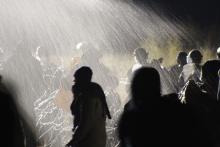
This Thanksgiving, I am struggling to be thankful in an angry, fearful, pain-filled world. The words of the liturgy suddenly pierce my consciousness: “Our Lord Jesus Christ, on the night he was betrayed, took bread, and after giving thanks, he broke it …”
After giving thanks?
How do you give thanks on a night when imminent death is staring you in the face?
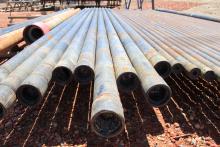
A controversial plan for an oil pipeline from North Dakota to Illinois is being met with opposition from the Standing Rock Sioux, reports the Des Moines Register. Members of the tribe expect to meet with a federal employee to express their concerns.
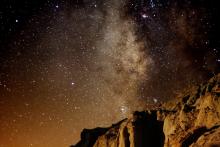
In February, President Obama designated 1.8 million acres of wild California desert as national monuments: Mojave Trails, Sand to Snow, and Castle Mountains. The California desert is a holy place, filled with spiritual values and important lessons. As Christians, this is a significant event. We know Jesus’ spiritual path included spending time in the desert wilderness to contemplate his purpose. Now, we, like Jesus and so many others, can have the beauty, solitude, dark night skies, and wild nature of the desert from which to draw inspiration, practice our faith, and grow better.
The California desert is a place where these elusive values remain, and they are vital for humankind. We have a spiritual heritage to protect, and with these three monument designations, Christian communities will forever have these living sanctuaries where we can practice our faith.
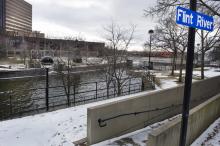
While Michigan Gov. Rick Snyder has admitted that mistakes have been made and takes full responsibility, the residents of Flint to this day have not found remedy. His initial action was to have city fire stations serve as bottled water and water filter distribution points. Michigan National Guard personnel provided water to residents there.
And the nation knows the crisis — high lead levels in children’s blood tests and a spike in Legionnaires disease.

The failure to provide clean water to Flint, Mich., residents has sacrificed their safety and hindered their access to one of the most basic human needs — water. It also drastically diminished the capacity of citizens to exercise leadership and stewardship because lead poisoning stunts victims’ brain development. Plus, the town of Flint, itself, is the “least of these” in the state of Michigan. It is the state’s poorest city.

Last November, my deskmates at Sojourners (and my colleagues working all the way on the other side of the office) were interrupted by my joyful whooping and hollering at the news that President Obama had finally, finally killed the Keystone pipeline once and for all. Leading climate activist (and Sojourners contributing editor) Bill McKibben noted that the significance of the decision rippled far beyond Keystone XL itself: It made the president “the first world leader to reject a project because of its effect on the climate.”
Over the years, Keystone XL had become known by activists and journalists alike as “the zombie pipeline” — with delay after delay in the review process and legislative defeats followed by legislative resurrections in Congress as members attempted to expedite approval, the issue just wouldn’t die.

As we begin to walk the path to Easter this Maundy Thursday, Jacqui Rémond invited us to follow Jesus with a servant love of all creation.
“This Easter, I would invite you to replicate Jesus’ model of healing our neighbors … by caring for God’s creation, including humanity and all species,” she said.
Director of Catholic Earthcare Australia, Rémond draws on the words of Pope Francis in Laudato ‘Si, describing the nobility in the duty to care for creation — a duty worked out in small, deliberate acts.

Last night’s Democratic presidential primary debate in Flint, Mich., ran the gamut on issues, from guns to trade to racism to religion.
But it was also the most environmentally focused debate yet in the 2016 campaign.
Here’s a quick summary of the main environmental issues that came up (and a couple that didn’t).
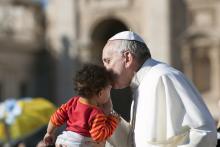
Pope Francis conducted Mass in the Mexican state of Chiapas (home to more than 1 million indigenous people), with Bibles available in different indigenous languages in order to make the ceremony accessible to as many audience members as possible.
Pope Francis minced no words when it came to the environment: “The environmental challenge that we are experiencing and its human causes affects us all and demands our response ... we can no longer remain silent before one of the greatest environmental crises in world history.”
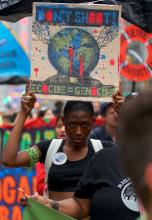
Black History Month is a time to reflect on the contributions African Americans have made to this country. We are right to pause and look back on those who have fought for justice and equal rights. But we mustn’t stop there. We also need to look forward and act to address one of the deadliest legacies of racial inequality: toxic pollution that is harming our children and poisoning our environment.

Before the announcements of the new agreement at COP 21, when the thousands of people who were not closely engaging with official delegates of the 190 countries gathered in Paris, I was sitting at a small white table with my new found friend Kenneth.
We spoke for nearly an hour before I asked him the question.
We had been talking about the work of the Ghanian Religious Bodies Network On Climate Change, which brings together Muslims, Christians, and Indigenous peoples across Ghana to work on climate change because, after all, “climate change impacts all of us.” We touched upon capacity building, workshops, seminary education, practicalities, and visions. It was the kind of conversation that most people who were not directly involved in the negotiations were in Paris to have: networking, information sharing, and building cross-cultural relationships around common endeavors.
Finally, I asked him, “Are you religious?”

It was not so long ago that the cobblestones of Paris were red with blood. November 2015: terrorism. 1940: WWII. 1914: WWI. 1871: Prussians (post Napoleon). 1789: Revolution. One could keep going: 1479 – Joan of Arc.
With such a history in mind, and with politicians screaming “crusades” not so far away, it is no small thing to witness thousands upon thousands of people gathered to sit at tables with laptops and coffee and microphones and to talk to one another, countries who have warred with one another and taken one another’s trees and lakes and minerals. Here are 190 countries – not counting the many indigenous nations still unrecognized but many of which are still present.
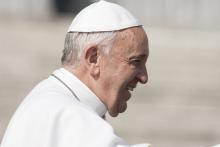
By choosing to focus on the plight of the poor and the groaning of the earth itself, Francis is tapping into something much deeper than denominational squabbles and political maneuvering. He is seeking to make an end-run around the tedious shouting matches of privileged contenders in pitched ideological battles. This is a pope, not of the pundits but of the people – and of the planet.
We’re all connected. Just as the body of Christ is one – despite all of our institutional and ideological boundaries – all of humanity, all life is one. We’re rooted together in the soil that feeds us, in the natural ecosystems that sustain our very existence.

Columbia, Mississippi is a small rural town most known as the home of Walter Payton, NFL player for the Chicago Bears. It is also my home — the place where I was born and raised.
On January 1, 1992, Jesus People Against Pollution was founded in Columbia. Residents had discovered that the town had been heavily polluted from the Newsom Brothers/Old Reichhold Chemical Company facility, now closed but still registering high levels of hazardous waste — what the EPA calls a “Superfund site.”
In March 1977, the plant exploded and wrecked the facility and surrounding community. The Old Reichhold Chemical Company abandoned their facility and hired an inexperienced contractor to dispose of the remaining toxins left on the site.
We had a very hot ride in the police van, but the Park Police processed us very quickly. We were released from custody and greeted outside with water, granola bars, and hugs. What could be better?
But the point was not to get arrested. The point was to make of our lives a living witness. To make it clear that climate change has gone too far and we are no longer going to stand idly by while our sisters, brothers, and home planet are torn apart by oil companies. Here are a handful of photos from the event yesterday: